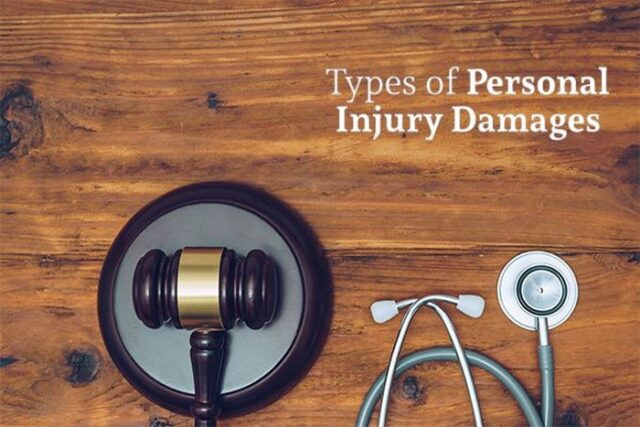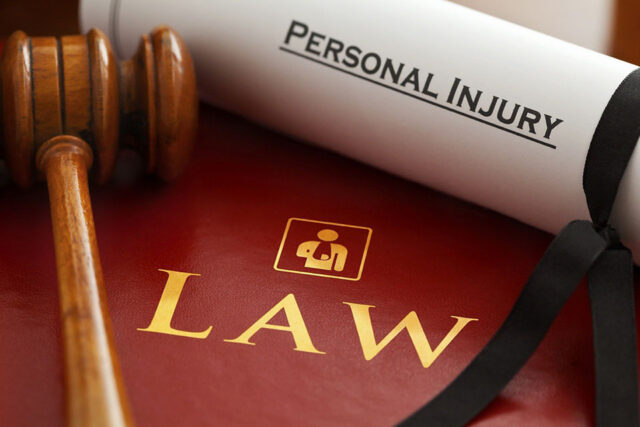
Personal injury damages are the financial compensation awarded to a victim of an accident or injury caused by another party’s negligence.
Calculating the amount of damages can be a complicated process, and it is important to have a good understanding of the legal principles involved. Here are 7 legal tips to know when calculating personal injury damages.
Understand the Types of Damages

There are two types of damages that may be awarded in a personal injury case: economic and non-economic. Economic damages refer to the monetary losses incurred by the victim, such as medical expenses, lost wages, and property damage. Non-economic damages, on the other hand, refer to intangible losses that cannot be easily quantified, such as pain and suffering, emotional distress, and loss of enjoyment of life.
If you have been injured in a motorcycle accident in Atlanta, a skilled Atlanta motorcycle accident lawyer can help you understand the different types of damages available in your case.
Economic damages are the monetary losses that you have incurred as a result of your damage. This can include medical bills, lost wages, and property damage. An experienced attorney can help you document these losses and ensure that you receive fair compensation for them.
Keep Accurate Records

When you are injured in an accident caused by someone else’s negligence, keeping accurate records is essential to ensure that you receive the compensation you deserve. These cases can be complex, and having detailed records of your expenses and losses can help support your claim for damages.
Why Keeping Accurate Records is Important
When you are pursuing a personal injury claim, you need to be able to prove your harms. This means providing evidence of the financial losses you have incurred as a result. Accurate records can help support your claim by providing concrete evidence of your expenses and losses.
What Records to Keep
There are several types of records you should keep when pursuing a personal injury claim, including:
- Medical records: Keep copies of all medical records related to your injury, including hospital records, doctor’s notes, and bills for medical treatment.
- Lost wage records: If your injury has caused you to miss work, keep records of your lost wages, including pay stubs and documentation from your employer.
- Property records: If your injury resulted in harm to your property, keep records of the harm and the cost of repairs.
- Other expenses: Keep records of any other expenses you have incurred as a result of your injury, such as transportation costs, home care expenses, or costs associated with making your home more accessible.
How to Keep Accurate Records
To keep accurate records, start by organizing all of your paperwork in a single location. Use a file folder or binder to keep all of your records in one place. Be sure to label each document clearly and include the date and a brief description of the document.
In addition to keeping hard copies of your records, you may also want to keep digital copies. You can use a scanner or a smartphone app to digitize your records and store them in the cloud or on your computer.
Consider Future Expenses

When calculating economic damages, it is important to consider not only the expenses you have already incurred but also those that you may incur in the future. For example, if your injury will require ongoing medical treatment or result in a loss of future income, these expenses should be factored into calculating your hurts.
Seek Expert Testimony
In some cases, it may be necessary to seek expert testimony to support your claim. For example, if you have suffered a serious injury that will require long-term medical care, you may need to consult with a medical expert to determine the full extent of your future medical expenses.
Know the Limits on Damages

In some jurisdictions, there may be limits that can be awarded in a personal injury case. These limits may be set by statute, court rules, or other legal authorities. It is important to know the limits in your jurisdiction and to ensure that your claim does not exceed those limits.
Why Limits on Damages Exist
The purpose of limits on damages is to prevent excessive or frivolous lawsuits and to promote consistency in the legal system. By limiting the amount of harm that can be awarded, courts can ensure that defendants are not unfairly burdened with excessive financial obligations.
Types of Limits on Damages
Several types of limits on damages may apply in a personal injury case, including:
- Statutory limits: Some jurisdictions have laws that place a cap on the number that can be awarded in a personal injury case. These limits may apply to economic harms, non-economic damages, or both.
- Comparative fault limits: Some jurisdictions follow a comparative fault system, which means that hurts are reduced based on the degree of fault attributed to the plaintiff. In these cases, harm may be limited based on the plaintiff’s level of fault.
- Sovereign immunity limits: In some cases, government entities may be immune from certain types, such as punitive damages or impairments for pain and suffering.
Be Prepared to Negotiate

In many cases, the amount of harm awarded in a personal injury case is negotiated between the victim and the responsible party’s insurance company. It is important to be prepared to negotiate and to have a clear understanding of the strengths and weaknesses of your case.
Consider Hiring an Attorney

When you have suffered a serious injury, it may be in your best interest to hire an experienced personal injury attorney. An attorney can help you navigate the legal process, negotiate with insurance companies, and ensure you receive the compensation you deserve.
Why Hiring an Attorney is Important
Personal injury cases can be complex and require a significant amount of legal knowledge and experience. An attorney who specializes in personal injury law can help you understand your legal rights and options, as well as the strengths and weaknesses of your case. They can also help you navigate the legal process, which can be confusing and overwhelming for someone who is not familiar with it.
Conclusion

In conclusion, calculating personal injury damages can be a complex and challenging process. By understanding the legal principles involved, keeping accurate records, considering future expenses, seeking expert testimony, knowing the limits on damages, being prepared to negotiate, and considering hiring an attorney, you can increase your chances of receiving the compensation you deserve.












